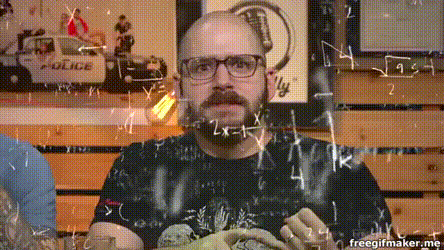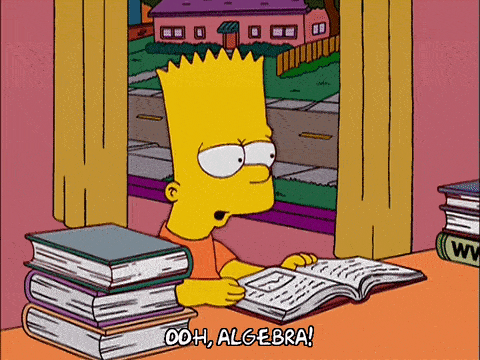It’s no secret that science – be it chemistry, physics, or biology – is a difficult beast to tackle. Even worse still, many students take multiple of these tricky topics simultaneously, making their workloads heavier by the week.
While some people find scientific concepts easy to pick up, the majority of us can really struggle with these abstract ideas. There are so many complicated words to remember, lots of wacky concepts, and don’t even get me started on all of the algebra involved. As a result, many students are left wondering – why am I doing this to myself?
It’s a grim question, but the truth is, you’re not alone. In this article, we’re going to break down why science is so hard, why you should stick your science classes out, and what you can do to make it all easier. Let’s crack on with it.
Why Science is So Hard
If you’re reading this as a science student, the chances are, we don’t need to tell you that these subjects are difficult. Even the most confident students will struggle with science at one point or another – you can’t tell us you understood linked genes, torque, and/or Hess’s Law the first time around.

Overall, there are a lot of reasons why science is so difficult. Sure, the concepts themselves are hard, and thinking through tricky ideas that aren’t second nature involves a lot of mental gymnastics. There’s usually more to it than just the content, though.
The Math-Science Death March
Does anyone else remember anything more fun than science before NCEA? There were colour-changing experiments involving spraying things into Bunsen burner flames, dissecting random animals or their organs, and looking at your own cheek cells under a microscope. Fun, right!
But then NCEA rolled around, and all the experiments you were doing started getting dull. Instead of spraying chemicals around a room, you’re dripping acid into a known volume of base (hey, titrations), or loading weights on a spring and seeing how far it drops. Instead of leaving the experiment at that, your teacher then asks you to calculate the acid’s concentration in moles per litre, or use some graphing technique to figure out the spring constant, whatever that is.
And there it is – the Math-Science Death March.
This is a concept describing how younger students get lured into science with fun, fairly straightforward concepts, before getting slammed with the maths that comes with studying these subjects. It only gets worse the further you get into studying that subject.
When high school scientists come to university to study their passions, they get dumped with a wave of algebra and calculus. Because the vast majority of students struggle with maths in one way or another, large percentages of science majors switch to another path when they hit university.

Don’t get us wrong; we aren’t trying to throw all of you science-slaves off here. People without maths backgrounds can absolutely thrive in science degrees, so you shouldn’t feel put off if you’re in the same boat. While it might take you a little extra time and effort to wrap your head around Excel or rearranging equations, there are loads of great resources out there, and we promise, you’ll be just fine. Still, the maths definitely doesn’t make things any easier, and can throw off quite a few people along the way.
The Competition Can Get Insanely Overwhelming
Regardless of whether you’re from a private or public school, we’re sure you’ve seen those few science students at the top of the academic food chain, fighting with each other for Dux or top of their class. (Sorry if you’re one of them – we aren’t trying to single anyone out here.)
Not to mention, in some STEM (science, technology, engineering, mathematics) and health science fields, the competition only gets worse after high school. If everybody’s fighting to have the best grades, and to get into next year’s courses, some people might end up taking their stress out on others studying the same courses.
It isn’t always about competing with other people, either – sometimes, it’s just you competing with yourself.
Science students are notorious for striving for those perfect E8s, more so than other subjects. While a few can be more easy going with their grades, it’s pretty common for science students to be constantly berating themselves because they “should’ve done better”. Having that phrase playing on loop in your inner monologue can get pretty gnarly.
Trust us, we know how much science students can struggle with their mindsets. Don’t worry, though, we’ll touch on mindset more in a bit.
Finding a Work-Life Balance
We’ve already established that us science nerds (and I say “nerd” affectionately) can put a lot of pressure on ourselves. Combine this with time management issues, and you’ve got a perfect storm.
It’s no surprise that science can be a time-consuming beast. You have to spend time grappling with research and report writing, memorising terminology for exams, and making sure you’ve got all those excellence-level concepts down pat.
The problem comes when we try to keep on top of all of our work while staying sane. Maybe you’ve been studying all day, and you still don’t feel confident enough to stop just yet, but your friends are hanging out without you. You’ll either keep studying and endure some terrible FOMO, or go out and feel guilty for not working.

Combine the guilt that comes with having fun with the intense pressures we dump on ourselves, and you’ve got a real problem. Even though the sciences are engaging and fascinating subjects to study, this can really suck the life out of it.
Alright, enough with the negativity. All this hard work has to be good for something, right?
Why Science is Worth It
We’ll be straight with you here – if you don’t enjoy science, there’s nothing we can say here that’ll convince you, and that’s a good thing! Here at StudyTime, we’re big supporters of doing something because you love it, not because you feel obliged to, or you’ll make a lot of money from it, or anything else. However, if you do like science, and you’re on the fence about whether you’re smart enough, dedicated enough, or patient enough, keep on reading.
It’s fulfilling in the long run
As NCEA students, you might not be looking at the big picture yet. However, this is a really important step to take when you’re trying to remain motivated about something that you’re studying.
One of the most incredible things about sticking with science is that it can be genuinely rewarding. As with any challenging subject, succeeding in your field – whether that’s learning a difficult concept or getting a great mark on your exam – majorly boosts your self esteem. Not to mention, science is all about innovation, and thinking outside the box.
Maybe one day you’ll be working in a laboratory, making some wild discoveries about a new medicine that’ll cure a life-threatening disease. Perhaps you’ll be working with the general public, administering those medicines to the people that need them most. Are you one of the few that like maths? Well, you could even be crunching all the numbers to prove how well that medicine is working.
Not to mention, we all know the planet’s burning up. Now more than ever, we need fresh new ideas on ways to keep things sustainable. In a few years time, you could be in the field working with some top chemists to develop sustainable fuels, or creating environmentally friendly alternatives to things like plastics and meat. We’re also going to need people to help us communicate and explain these new inventions, and science communicators are always in demand, if you enjoy writing.
But of course, not everybody is gunning to be a hotshot science innovator, and that’s good news for the rest of us. We always need new generations of scientists, so having passionate, dedicated, and confident teachers is so vital. While they might not be your favourite people right now (especially when they give you too many assignments at once), teachers are unbelievably important to how well our society functions. Who knows – maybe that could be you one day.
It makes your brain stronger
There are a lot of people out there who study science, yet have no desire of following up with a traditionally science-y career in the future. Even still, studying science is a great idea, because – simply put – science is so freaking annoying. Allow me to elaborate.
As the great Aristotle once said;
“Learning is not child’s play; we cannot learn without pain.”
Let’s swerve off on a tangent for a second. The first few weeks of starting to run or weight train every other day always feel awful. It hurts, you’re sweaty, and you’re not having a remotely nice time. But, as the weeks go on and you keep up with your routine, it starts getting easier. Maybe, even, you learn to like the feeling of muscle fatigue, because you know it means you’re making progress.

Now, let’s use that analogy to compare some study techniques – specifically, highlighting your notes, and writing answers to past exam questions without using your notes. If we’re talking about exercise, highlighting your notes is like going for a leisurely walk straight to your fridge. Sure, you might feel good at the end of it, but you didn’t build any muscle – or, rather, actually learn anything – along the way.
Meanwhile, doing a past exam question without your notes is painful! It’s frustrating, it’s slow, and honestly, it sucks. But still, much like with weight training, doing the hard slog is what helps you to make the most progress.
What’s this got to do with science, you ask? Well, science is hard. There’s no way around it, if you want to get good at science, you’ve got to spend a lot of time on those painful(ly effective) studying methods, aka, the study methods involving active retrieval. More on that here. When it comes down to it, science puts you under academic pressure, and it’s this pressure that forms a diamond. A smart, focused, good-at-studying diamond. How beautiful.
Making Science Easier
Science – and for that matter, all tricky subjects – can be made easier with deliberate, well thought out study regimes. As it happens, we’ve got a lot of thoughts on how students everywhere can improve their study habits. Listen up, because we’re about to spit some facts.

Audit your study habits
We could spout on and on about all the fantastic study habits you should be picking up, but the truth is, it’s hard to try to adapt to a range of new study techniques at once. An easier and more effective option is to evolve your current habits to be more productive.
To do this, we need to get reflecting.
Take some time to sit down and reminisce over all of the study techniques you’ve been using lately. Have you been sitting around, re-reading your notes? Or have you been devoting yourself to practising flashcards, textbook questions, or past papers? Note down each technique, and ask yourself, how well does this work for me?
Remember, as a general rule of thumb – the more difficult a study technique feels, the more effective it is.
If you know that completing past papers really helps you to consolidate knowledge in your brain, turn it into a habit. Start small, and set a goal of completing one past paper question every week. Slowly work this up until you’re completing more and more questions. Likewise, try to phase out unproductive study habits, like using your phone during revision or procrastinating.
There are two key sides to this. The first is to focus on that meaningful reflection. Being honest with yourself about what is helping you and what is only making things harder is so important to being a productive learner. The second side is focusing on doing something about what you’ve identified as being a key factor influencing your learning.
While reflection is such a powerful tool, there’s no point in using it if you don’t take action to improve.
When reflecting on your study habits, another key thing to take note of is how often you study, and how consistent you are. For example, if you cram-study for six hours in a week right before your internal, as opposed to not studying ever in the other weeks of the year, that’s an issue you need to identify.
To now fix the problem, focus on “averaging out” how many hours you spend studying. Perhaps you could aim to do two hours of revision every week, if that’s what works for you regarding any extracurriculars or part time jobs. Instead of cramming (which never works, and only makes you feel more stressed – come on, guys), aim to be consistent with your studying. This small change will make a big difference.

Boost your exam confidence
We all know studying sciences hinges off of how well you perform in exams, and unfortunately, there’s no way around it. However, there are a lot of simple changes you can make to make those exams easier. Let’s run through a few.
The flowchart-style explanations
Especially for those pesky wordy questions (biology, we’re talking about you here), understanding how to explain how a scientific process systematically occurs is vital. For any concept you need to explain in-depth, try thinking about it in a stepwise fashion. By breaking the concept down into a sort of flowchart, you’ll be ensuring that your explanations are always thorough and comprehensive, and you’re not missing any key points. Practising such explanations is also a great way to study big picture ideas.
Know the terminology, and how to use it
Even if you understand a concept thoroughly, if you’re using words wrong in your exam, you’re probably not going to do as well as you’d hoped. Ensure you know how to define terms by practising flashcards frequently and consistently.
To be confident with putting those words into context, write practice exam answers and hand them into your teacher for marking – they’ll let you know if anything’s out of place. Reading textbooks and even articles about the topics you’re studying will also help you to better understand the terms.

Think through the logic behind the maths
Especially if you’re not that keen on numbers, the maths can really trip a lot of students up. Hit up your teacher or mathematically-inclined classmates to help you break down why each step of the calculations are completed. If you know why you need to divide by this number or multiply by that number, answering the questions on your own in the exam will be a million times easier.
Improving your mindset
Remember earlier on in the article when we talked about how people studying science tend to be way too hard on themselves? It wouldn’t be a StudyTime article if we didn’t circle back to this, and give some advice to students who are really struggling to stay positive regarding their science studies.
Re-think competition
We’ve already talked about how competitive science students can be, and that this can sometimes be enough to put students off. While we might not be able to change the behaviours of every science student to make them less competitive and more cooperative, we can change our own approach.
Instead of thinking of competition as daunting and off-putting, turn the focus to bettering yourself. Forget about competing with other students – you’ve got no business comparing your grades to theirs – we’re all for competing with ourselves in a productive way.

The key word here is productive. We don’t want to waste our time beating ourselves up for not doing as well as we could’ve done on a test, or because we went out with our mates instead of studying. Instead, we’re going to use our reflection skills to analyse what went well, and what we’re going to improve on. Next time, we’ll try to beat ourselves, but if we don’t, that’s okay! We’re striving for progress, never perfection.
And with that being said:
Remember, you’re a student!
The purpose of a student is not to be perfect. Students are meant to learn, they’re meant to gain new skills and new knowledge. Never ever are students meant to burn themselves out and make themselves so stressed over an exam grade.
Basically, remind yourself to be comfortable with getting grades you maybe didn’t expect. Why? Because you’re still learning!
Not to mention, all you can do is your best. If you know you’re doing everything you can in regards to your studies, then you’ve got nothing to worry about. Keep up the great work – don’t let anyone else’s standards or expectations get in the way.
To sum up:
We know being a science student can be intimidating at times, and it’s easy to run yourself into the ground trying to keep up. To make things feel that much better, try incorporating some of the tips we’ve suggested, like keeping your study habits and your mindset in check.
For more practical study tips to get you feeling super confident with your science content, check out some of our other articles here!

0 Comments